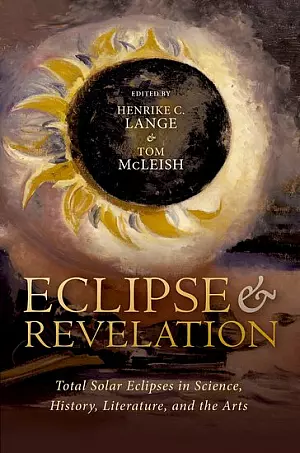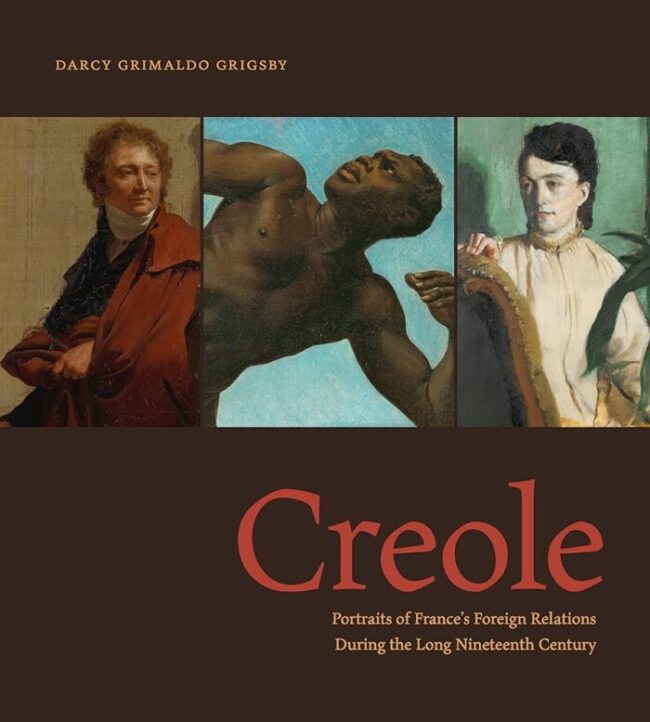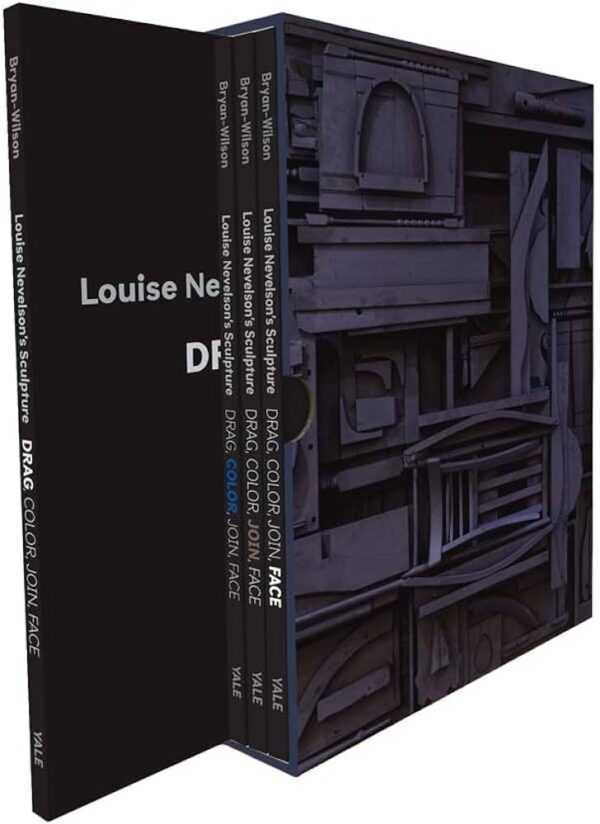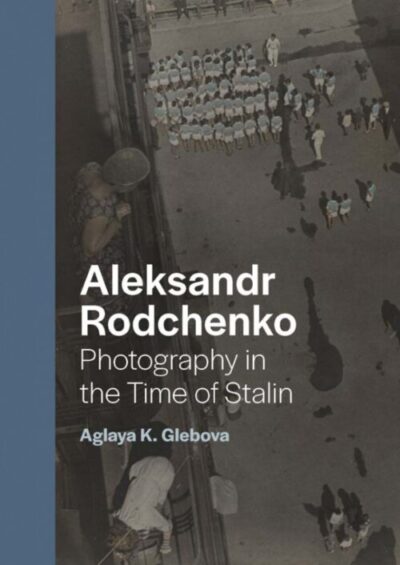Tag: “Berkeley faculty publications”
New Publication by Art History Faculty Henrike Lange
You can view Art History Professor Henrike Lange’s new book Eclipse and Revelation: Total Solar Eclipses in Science, History, Literature and the Arts, online.

From the Oxford University Press website:
“A total solar eclipse is a spectacle without equal. Henrike Christiane Lange and Tom McLeish study the human and cultural impact of totality. Every human culture has a mythology about solar eclipses. These stories should be told and this book is an excellent survey of many cultures across the continents and throughout the centuries. I especially enjoyed the excerpts from Tom McLeish’s travel diary from August 2017 which capture the thrill of the chase and the allure of the corona in the co-authored Introduction. Chapter 2 by my late friend Jay Pasachoff on the solar corona is a masterclass in science communication. I highly recommend Eclipse & Revelation to anyone interested in solar eclipses and their many interactions with humanity.” — Michael Zeiler, Cartographer and Eclipse Chaser
“Genius! Truly marvelous and relevant work, beautifully illustrated and delivered: an utterly brilliant new take on interdisciplinary collaborations between the arts, humanities, and sciences exploring a gripping natural phenomenon across human history. Unlike any other, this book includes fascinating perspectives and early science from ancient Asia, Assyria, Babylonia, India, China, Greece and Rome, the scientific revolution to the present… – all topped off with the latest meteorological methods and a conclusion that creates a poetic awareness of the entire cosmos… Lange and McLeish deliver a passionate defense of the liberal arts and a delightful account of the perpetual curiosity, excitement, joy, and enduring love of wisdom at the core of the scientific and scholarly life.” — Andrew Stewart, Professor emeritus, History of Art and Classics at the University of California, Berkeley
Darcy Grimaldo Grigsby Faculty Book Talk Wednesday February 21st

Professor Darcy Grimaldo Grigsby will discuss her book Creole: Portraits of France’s Foreign Relations During the Long Nineteenth Century, with Karl Britto on Wednesday, February 21st from 12-1pm. This Townsend Center for the Humanities event will take place at Geballe Room, 220 Stephens Hall. Registration is requested. Click this link for more information.
CANCELLED Book Talk Sunday December 3rd from Art History Faculty Julia Bryan-Wilson

Julia Bryan-Wilson, Professor of Modern and Contemporary Art, will discuss her new book, Louise Nevelson’s Sculpture: Drag, Color, Join, Face , with Leigh Raiford, Professor of African American and African Diaspora Studies, at the Berkeley Art Museum and Pacific Film Archive on Sunday, December 3rd at 2pm. Click the link for more information.
From the publisher’s website:
“A daring reassessment of Louise Nevelson, an icon of twentieth-century art whose innovative procedures relate to gendered, classed, and racialized forms of making
“Here is a book that is not only a transformative study of a single artist but also a record of the scholar’s own labor—and her devotion.”—Artforum
In this radical rethinking of the art of Louise Nevelson (1899–1988), Julia Bryan-Wilson provides a long-overdue critical account of a signature figure in postwar sculpture. A Ukraine-born Jewish immigrant, Nevelson persevered in the male-dominated New York art world. Nonetheless, her careful procedures of construction—in which she assembled found pieces of wood into elaborate structures, usually painted black—have been little studied.
Organized around a series of key operations in Nevelson’s own process (dragging, coloring, joining, and facing), the book comprises four slipcased, individually bound volumes that can be read in any order. Both form and content thus echo Nevelson’s own modular sculptures, the gridded boxes of which the artist herself rearranged. Exploring how Nevelson’s making relates to domesticity, racialized matter, gendered labor, and the environment, Bryan-Wilson offers a sustained examination of the social and political implications of Nevelson’s art. The author also approaches Nevelson’s sculptures from her own embodied subjectivity as a queer feminist scholar. She forges an expansive art history that places Nevelson’s assemblages in dialogue with a wide array of marginalized worldmaking and underlines the artist’s proclamation of allegiance to blackness.”
Townsend Berkeley Books Chat with Aglaya Glebova
Aleksandr Rodchenko: Photography in the Time of Stalin

Through the lens of Aleksandr Rodchenko’s photography, Aglaya Glebova (History of Art) charts a new and provocative understanding of the troubled relationship between technology, modernism, and state power in Stalin’s Soviet Union.
Aleksandr Rodchenko: Photography in the Time of Stalin (Yale, 2023) traces the shifting meanings of photography in the early Soviet Union, as it reconsiders the relationship between art and politics during what is usually considered the end of the critical avant-garde. Aleksandr Rodchenko (1891–1956), a versatile Russian artist and one of Constructivism’s founders, embraced photography as a medium of revolutionary modernity. Yet his photographic work between the late 1920s and the end of the 1930s exhibits an expansive search for a different pictorial language.
In the context of the extreme transformations carried out under the first Five-Year Plans, Rodchenko’s photography questioned his own modernist commitments. At the heart of this book is Rodchenko’s infamous 1933 photo-essay on the White Sea-Baltic Canal, site of one of the first gulags. Glebova’s careful reading of Rodchenko’s photography reveals a surprisingly heterodox practice and brings to light experiments in adjacent media, including the collaborative design work Rodchenko undertook with Varvara Stepanova, his partner in art and life.
Glebova is joined by Harsha Ram (Slavic Languages & Literatures and Comparative Literature). After a brief discussion, they respond to questions from the audience.
New book by Estelle Tarica
Holocaust Consciousness and Cold War Violence in Latin America proposes the existence of a recognizably distinct Holocaust consciousness in Latin America since the 1970s. Community leaders, intellectuals, writers, and political activists facing state repression have seen themselves reflected in Holocaust histories and have used Holocaust terms to describe human rights atrocities in their own countries. In so doing, they have developed a unique, controversial approach to the memory of the Holocaust that is little known outside the region. Estelle Tarica deepens our understanding of Holocaust awareness in a global context by examining diverse Jewish and non-Jewish voices, focusing on Argentina, Mexico, and Guatemala. What happens, she asks, when we find the Holocaust invoked in unexpected places and in relation to other events, such as the Argentine “Dirty War” or the Mayan genocide in Guatemala? The book draws on meticulous research in two areas that have rarely been brought into contact—Holocaust Studies and Latin American Studies—and aims to illuminate the topic for readers who may be new to the fields.
[from publisher’s site]
Estelle Tarica is Professor of Latin American Literature and Culture and former Chair of the Latin American Studies Program at UC Berkeley. She is incoming Chair of the Department of Spanish & Portuguese. Her previous book The Inner Life of Mestizo Nationalism concers the discourse of indigenismo and mestizaje in Mexico, Peru and Bolivia focusing on the work of José María Arguedas, Rosario Castellanos and Jesús Lara. Her articles have appeared in edited volumes and in the journals Chasqui, Revista de Crítica Literaria Latinoamericana, Latin American Literary Review, Journal of Latin American Studies, Política Común and Yale French Studies, among others.
She discussed her latest book with Alejandra Decker (Hispanic Languages and Literatures, UCB) and Robert Kaufman (Comparative Literature, UCB) on April 7 through the Center for Latin American Studies.
Holocaust Consciousness and Cold War Violence in Latin America.
Albany: State University of New York Press, 2022.
New Book by Timothy Hampton
![Cheerfulness [book cover]](https://pup-assets.imgix.net/onix/images/9781942130604.jpg?w=600&auto=format)
Cheerfulness: A Literary and Cultural History tells a new story about the cultural imagination of the West wherein cheerfulness — a momentary uptick in emotional energy, a temporary lightening of spirit — functions as a crucial theme in literary, philosophical, and artistic creations from early modern to contemporary times. In dazzling interpretations of Shakespeare and Montaigne, Hume, Austen and Emerson, Dickens, Nietzsche, and Louis Armstrong, Hampton explores the philosophical construal of cheerfulness — as a theme in Protestant theology, a focus of medical writing, a topic in Enlightenment psychology, and a category of modern aesthetics. In a conclusion on cheerfulness in pandemic days, Hampton stresses the importance of lightness of mind under the pressure of catastrophe. A history of the emotional life of European and American cultures, a breathtaking exploration of the intersections of culture, literature, and psychology, Cheerfulness challenges the dominant narrative of Western aesthetics as a story of melancholy, mourning, tragedy, and trauma. Hampton captures the many appearances of this fleeting and powerfully transformative emotion whose historical and literary trajectory has never before been systematically traced.
[from publisher’s site]
Professor Hampton, who holds a joint appointment in the Departments of French and Comparative Literature, is director of the Townsend Center for the Humanities. He discussed his recent book with Seth Lerer (Literature, UC San Diego) on April 20 through the Townsend Center’s Berkeley Book Chats.
Cheerfulness: A Literary and Cultural History.
Princeton: Princeton University Press, 2022.
New Book by Michael Lucey
Michael Lucey offers a linguistic anthropological analysis of Proust’s In Search of Lost Time.
What happens when we talk? This deceptively simple question is central to Marcel Proust’s monumental novel In Search of Lost Time. Both Proust’s narrator and the novel that houses him devote considerable energy to investigating not just what people are saying or doing when they talk, but also what happens socioculturally through their use of language. Proust, in other words, is interested in what linguistic anthropologists call language-in-use.
Michael Lucey elucidates Proust’s approach to language-in-use in a number of ways: principally in relation to linguistic anthropology, but also in relation to speech act theory, and to Pierre Bourdieu’s sociology. The book also includes an interlude after each of its chapters that contextualizes Proust’s social-scientific practice of novel writing in relation to that of a number of other novelists, earlier and later, and from several different traditions, including Honoré de Balzac, George Eliot, Virginia Woolf, Nathalie Sarraute, and Rachel Cusk. Lucey is thus able to show how, in the hands of quite different novelists, various aspects of the novel form become instruments of linguistic anthropological analysis. The result introduces a different way of understanding language to literary and cultural critics and explores the consequences of this new understanding for the practice of literary criticism more generally.
[from publisher’s site]
Professor Lucey, who holds a joint appointment in the Departments of French and Comparative Literature, discussed his recent book with Suzanne Guerlac on April 6 through the Townsend Center’s Berkeley Book Chats. The event was recorded and is available online.
What Proust Heard: Novels and the Ethnography of Talk.
Chicago: University of Chicago Press, 2022.
![[book cover]](https://update.lib.berkeley.edu/wp-content/uploads/2022/06/tarica.png)
![What Proust Heard [book cover]](https://press.uchicago.edu/.imaging/mte/ucp/medium/dam/ucp/books/jacket/978/02/26/81/9780226816678.jpg/jcr:content/9780226816678.jpg)